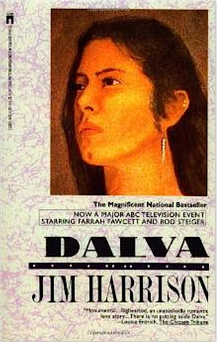A WRITER'S WIT
The form of my poem rises out of a past that so overwhelms the present with its worth and vision that I'm at a loss to explain my delusion that there exist any real links between that past and a future worthy of it.
Hart Crane
Born July 21, 1899
My Book World

Dalva is named by her parents after a Portuguese song, “Estrella Dalva,” or “Morning Star.” It may suit Dalva throughout her life for she always seems to be up early enough to witness such thing. She's always active, on the move in her universe. ¶ While still a teenager, Dalva falls in love with a half-Sioux man and makes love to him. When she becomes pregnant, she is sent off to have the baby and put it up for adoption. Dalva will never marry, and she will never have another child. She begins a rather circuitous journey to find out where her son is. She doesn’t necessarily wish to meet him or become part of his life; she merely hopes to find out how his life has turned out. ¶ Interwoven throughout this search is the buried story of her great great grandfather, by way of his journals, that a young scholar, Michael, examines for his research. But always the thrust of the narrative is Dalva in search of her son. The tragic story of the Sioux serves to inform Dalva of the wildness, perhaps, of her half-Sioux lover, the foretelling of what her son might be like, when she finally does meet up with him. And ironically, (thanks to artful writing) the meeting with her son comes near the end of the book. And it is brief. The book has been all about the journey. What happens to those two is now anyone’s guess. It could even become another story, for another time, and in fact, does with Harrison's novel, The Road Home, published in 1998. Dalva, in the long run, may become known more for its fair and stark retelling of the American West: how the original homeowners were duped out of their land forever.
NEXT TIME: NEW YORKER FICTION 2014


 RSS Feed
RSS Feed